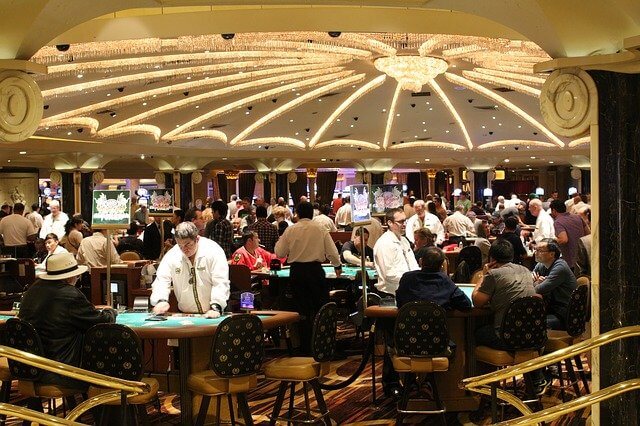
Casino games have long captured the interest of people around the world, becoming an important part of both fun and tradition. From the shimmering lights of Nevada to the captivating experience of online gaming, these activities evoke excitement, uncertainty, and sometimes even a sense of sentimentality. They are more than simply hobbies; they have woven themselves into the texture of human experience, influencing various aspects from film and songs to fashion and books.
The charm of casino games surpasses the gambling aspect, tapping into broader themes of fortune, risk, and psychology. As players convene around a poker table or spin the wheel of fortune, they engage in an age-old ritual that echoes with our shared desire for excitement and unpredictability. link F168 This captivation has led to the growth of countless references in movies, tracks, and video games, showcasing how intensely entrenched these activities are in pop culture. Whether it is the high-stakes tension of a traditional caper or the colorful nightlife portrayed in videos, casino games have created a substantial role that reflects our relationship with risk.
Cultural Significance of Casino Games
Gambling games have played a key role in cultural aspects throughout the ages. Originating from old civilizations, games of chance were often linked to rituals or events. For example, early forms of these activities can be linked back to ancient Chinese and the Romans, where die games and wagering on outcomes were popular pastimes. These games not only functioned as entertainment but also as means of connecting people, facilitating connections among people within communities.
As societies evolved, so did the complexity and organization of gambling games. The creation of official casinos in the 17th century, particularly in the Italian region, marked a major shift in how games were viewed and organized. With specific spaces for gambling, the casino became a social hub where patrons from various backgrounds gathered. This evolution contributed to the validation of gambling, transforming it from a mere pastime into an organized industry that shaped economy and policy.
The effect of casino games on popular culture cannot be understated. As they were popularized in books and movies, games such as Texas Hold’em and 21 became symbols of chance, chance, and tactics. Famous figures and stories have emerged around these games, reflecting societal views towards luck, prosperity, and immorality. This interest with casino games has infiltrated various forms of media, solidifying their status in the collective consciousness and linking them to wider cultural stories throughout the ages.
Representation of Gambling Activities in Media
Casino games have long been a popular theme in various forms of media, reflecting both the thrill and nuances of the world of gambling. Movies such as Ocean’s Eleven and Casino Royale portray individuals who navigate high-stakes environments, showcasing not only the allure of the casino atmosphere but also the tactics and judgments that come with playing popular games like poker and 21. These movies often dramatize the excitement of winning and the potential results of losing, encapsulating the dangers involved in betting.
TV programs have also explored the universe of gambling activities, often integrating them into the narrative as a backdrop for character arcs and conflict. Shows like Las Vegas depict the stories of gambling employees and casino-goers, highlighting the dynamic, often tumultuous energy of the casino floor. Reality shows featuring intense betting contests further emphasize the fascination of casino games, drawing viewers into the tension and tactics involved in each game. Through these representations, media not only engages but also sparks conversations about luck, expertise, and the character of randomness.
Digital games have increasingly included casino games into their structure, allowing players to simulate the feeling of betting without financial exposure. Titles within the realm of online gaming often include virtual slots, poker, and other popular casino games, creating an interactive experience that mirrors traditional gambling. These virtual portrayals make gambling activities accessible to a broad demographic, appealing to both players who indulge and those who enjoy the excitement of virtual experiences. As a consequence, the portrayal of casino games in entertainment continues to shape public perception and cultural significance, highlighting their place in entertainment and the cultural landscape.
Impact of Casino Games on Society
Gambling activities have a meaningful impact on communities, influencing various aspects of societal norms and social behavior. They often serve as a platform for community engagement, where people gather to enjoy a common experience. Game nights with friends or visits to casinos become group events that build connections and create memories. This collective aspect enhances the entertainment value of casino games, making them a popular choice for celebrations and recreational pursuits.
Additionally, casino games have been depicted in countless movies, TV series, and written works, influencing views and opinions towards gaming and gaming. Icons like James Bond competing in baccarat or the high-stakes poker scenes in films have cemented these games in the shared imagination. This representation often idealizes the culture associated with gambling, drawing in new players and influencing trends in both fashion and behavior. These portrayals can spark curiosity and lead to a more profound exploration of the intricacies of gaming.
Nonetheless, there are also adverse consequences linked to the widespread appeal of casino games. The allure of quick monetary gain can lead to gambling addiction and economic troubles for some people. Society must contend with these consequences, promoting responsible gaming and education of the risks involved. Balancing the fun aspect of gambling activities with the potential for harm is vital to ensure that they continue to be a positive aspect of our cultural landscape.